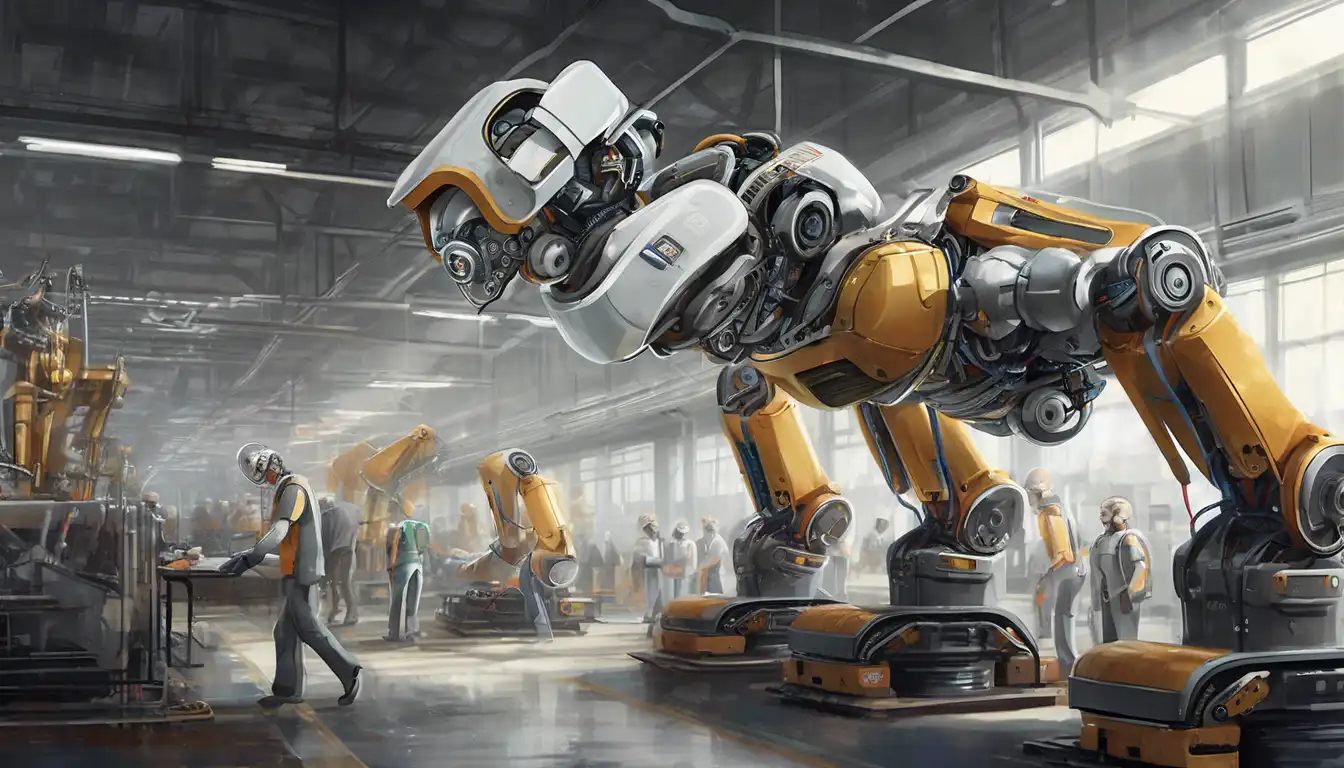The Revolutionary Impact of Robotics on Modern Manufacturing
In the realm of manufacturing, robotics has emerged as a game-changer, revolutionizing how products are designed, produced, and delivered. This transformation is not just about automating repetitive tasks but also about enhancing precision, efficiency, and safety in manufacturing processes. As we delve deeper into the 21st century, the integration of robotics in manufacturing is setting new benchmarks for productivity and innovation.
Enhancing Efficiency and Productivity
One of the most significant advantages of robotics in manufacturing is the remarkable increase in efficiency and productivity. Robots are capable of operating 24/7 without fatigue, drastically reducing production times and increasing output. This relentless efficiency enables manufacturers to meet the growing demands of the global market more effectively.
Improving Precision and Quality
Robotics technology has brought about unparalleled precision in manufacturing. With advanced sensors and programming, robots can perform intricate tasks with minimal errors, ensuring high-quality products. This precision is particularly crucial in industries where even the slightest deviation can lead to significant issues, such as aerospace and medical devices manufacturing.
Reducing Costs and Waste
By automating processes, robotics helps in significantly reducing labor costs and minimizing waste. Robots optimize the use of materials and energy, leading to more sustainable manufacturing practices. This not only benefits the environment but also improves the bottom line for manufacturers.
Enhancing Worker Safety
Robotics has also transformed the manufacturing floor into a safer environment for workers. By taking over dangerous tasks, such as handling hazardous materials or operating heavy machinery, robots reduce the risk of workplace injuries. This shift allows human workers to focus on more strategic and less hazardous aspects of production.
The Future of Manufacturing with Robotics
The future of manufacturing lies in the further integration of robotics and artificial intelligence (AI). Smart factories, where robots and humans work side by side, are becoming a reality. These advancements promise to unlock new levels of customization, flexibility, and efficiency in manufacturing.
As robotics technology continues to evolve, its impact on manufacturing will only grow stronger. Manufacturers who embrace this transformation will find themselves at the forefront of innovation, ready to meet the challenges of the future head-on.
For more insights into how technology is shaping industries, explore our articles on technology trends and the future of work.
